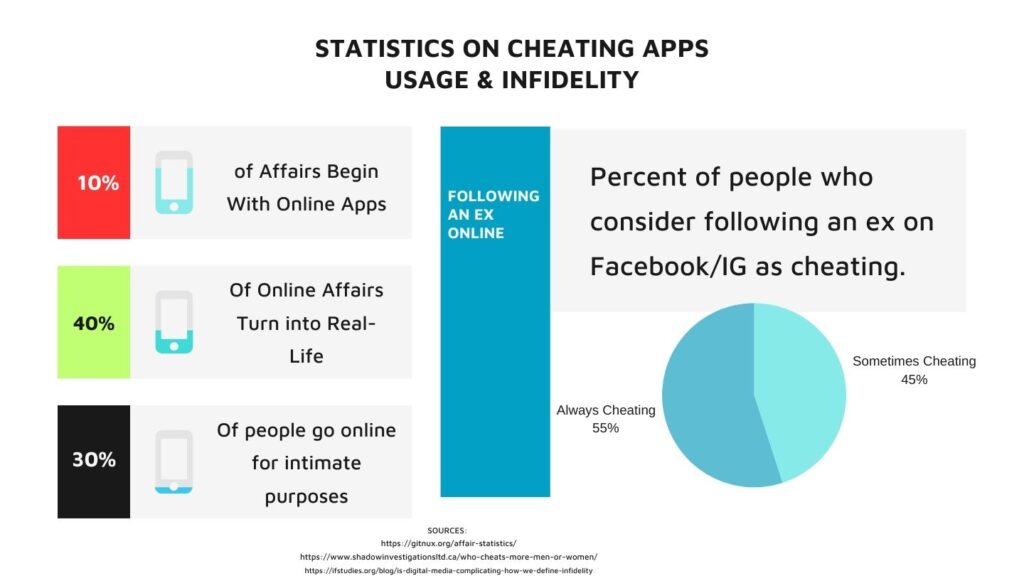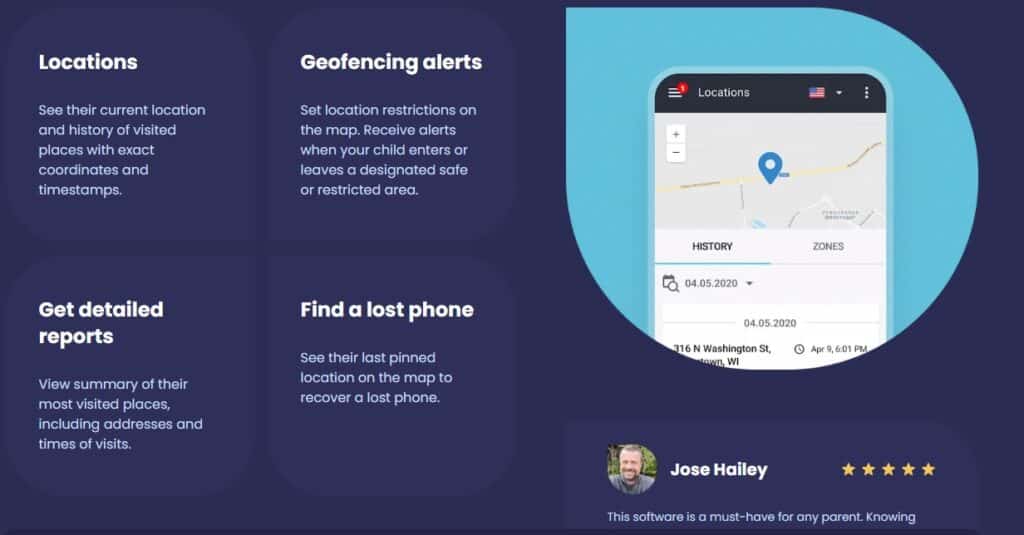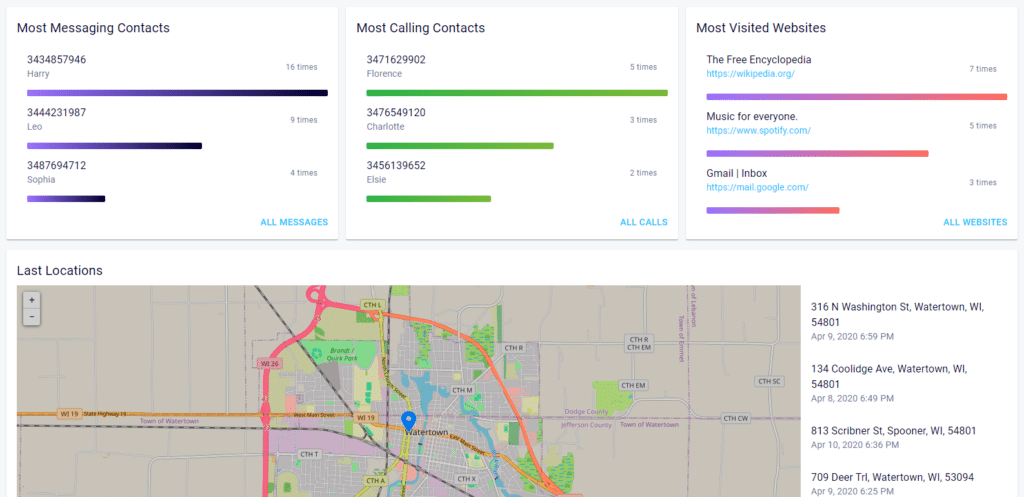The digital age has significantly impacted relationships in the last decade. Numerous studies show that social media and online platforms influence our romantic lives and interactions.
Statistics show that 48% of people report sharing details of their relationship on social media, and 1 in 5 divorces are linked directly to social media activities.
100% private & discreet search.
Facebook cheating has been identified as the primary source of evidence in divorce cases (ZipDo).
What Are Cheating Apps?
There are two types of cheating apps. firstly, those apps that provide people the means to engage in infidelity, like Snapchat and Tinder, allow for secret communication. Secondly, apps designed to help cheating victims discover the truth and gather evidence.
The purpose of this article is to navigate you through the murky waters of infidelity by introducing you to the top free tools and apps, such as Spynger, mSpy, and Eyezy, that can assist in detecting unfaithful behavior.
According to this article in the Washington Post, “digital infidelity” is on the rise, and therapists have seen large increases in people having affairs through their phones.
Another study done by the National Library of Medicine indicates that digital infidelity, which is emerging as a significant issue with increased internet usage, is now seen as potentially as harmful as physical infidelity, affecting marital relationships deeply and negatively impacting the mental health of the spouse who feels betrayed.
Get an Instant Cyber Background Check
Prepare to Be Shocked! Search Any Name to Begin.

What Are The Best Cheating Apps for Catching Cheaters?
With the rise of digital technology, there are now more tools than ever to help uncover the truth. Here, we explore some of the best cheating apps designed to catch cheaters, offering peace of mind to those plagued by doubt. It’s crucial, however, to approach this sensitive endeavor with respect for privacy and legality.
1. Reverse Phone Lookup
Reverse phone lookup services have become the go-to method for many who find themselves tangled in the web of suspicion and doubt, particularly in matters of infidelity. The main reason they are so popular is their user-friendly and non-intrusive nature.

How Reverse Phone Lookup Works
Pros of a Reverse Phone Lookup
Reverse phone lookup works by entering a phone number into a lookup service. You can then access detailed information about the owner of that number, including their name, address, and possibly other personal details, including online social media profiles and any hidden profiles linked to that number and associated email addresses. This information can be crucial for those trying to understand the context of their partner’s communications without jumping to conclusions.
- Discretion and Anonymity: One of the primary reasons reverse phone lookup is favored is because it allows individuals to conduct their search in complete anonymity, without alerting the person on the other end.
- Ease of Use: Unlike other investigative methods that require technical know-how, reverse phone lookup services are user-friendly and accessible to anyone with internet access.
- Immediate Results: These services typically provide instant information, making them an efficient way to get answers without the need for time-consuming investigations.
Cons of a Reverse Phone Lookup
- Accuracy: The accuracy of the information can vary significantly between providers.
- Addressing Underlying Issues: Identifying the owner of a suspicious number or secret dating profiles doesn’t solve the underlying trust issues in a relationship.
2. Reverse Email Lookup
Reverse Email lookups offer another discreet way to investigate and understand the “online footprints” left behind from an email, providing insights that could be pivotal in addressing concerns about fidelity.

How Reverse Email Lookup Works
A reverse email lookup service allows you to input an email address and retrieve information about the owner of that address. This can include the person’s name, social media profiles, other online activities, and sometimes even location details. It’s a digital tool designed to demystify the person behind an email, making it invaluable for those questioning the loyalty of their partner.
Pros of Reverse Email Lookups:
- Privacy and Anonymity: A reverse email lookup service can be used confidentially, ensuring your inquiries remain private and the email owner is not alerted.
- Quick Results: Much like reverse phone lookups, reverse email lookups can provide immediate insights, which is particularly beneficial for those seeking quick answers without wanting to invade their partner’s personal space directly.
Cons of Reverse Email Lookup
- Reliance on Public Data: These services depend on publicly available data, which may not provide a complete picture of the individual’s activities or relationships.
- Emotional Impact: Unearthing unexpected or upsetting information can have a significant emotional toll on the searcher.
3. mSpy
mSpy is a leading application that provides users with a comprehensive suite of monitoring tools. This app is designed to track and record various activities on the target device, including call logs, text messages, and activities on social media platforms. It’s especially effective for monitoring popular messaging apps, making it a valuable tool for individuals suspecting infidelity.

One of the key strengths of mSpy is its ability to operate in stealth mode, meaning the app runs invisibly on the target device, gathering information without detection.
This includes:
- tracking GPS location,
- monitoring incoming and outgoing calls,
- reading text messages,
- accessing social media interactions.
Pros:
- Comprehensive tracking features covering a wide range of digital activities.
- Stealth mode operation ensures the user remains undetected.
- User-friendly interface for easy data access and management.
Cons:
- Requires physical access to the target device for installation.
- Subscription model can be expensive over time.
- May raise ethical and legal concerns regarding privacy.
4. FlexiSPY
FlexiSPY is renowned for its advanced surveillance features, including the ability to intercept and record phone calls, a capability not commonly found in other apps. This makes it an exceptional choice for those looking to listen in on the digital conversations of a suspected cheater.

FlexiSPY’s edge comes from its call interception and recording features, allowing users to hear conversations as they happen or access them later. It provides an in-depth look into the verbal communications of the person being monitored, offering clarity and evidence that can be crucial for personal decision-making.
Beyond its call-related capabilities, FlexiSPY can also capture messages, emails, and even the keystrokes on its target device. Its ability to run in complete stealth mode ensures that these activities remain unnoticed by the target. FlexiSPY also offers remote control over the camera and microphone for live spying.
Pros:
- Call interception and recording features offer direct insights into verbal communications.
- Comprehensive monitoring capabilities across various digital communications.
- Stealth mode ensures monitoring remains undetected.
Cons:
- Installation requires rooting or jailbreaking the target device, which can be complex and risky.
- High cost compared to other spyware apps.
- Ethical and privacy concerns regarding the extent of monitoring capabilities.
5. Spynger
Spynger cheating app is marketed as the ultimate tool for those suspecting infidelity, designed to catch cheaters red-handed by offering comprehensive monitoring features.

It allows users to monitor every keystroke, track locations, view call logs, and read social media and messaging app chats, including those on dating apps.
The service emphasizes its undetectability, promising to run hidden in the background without affecting device performance.
Spynger supports various devices and offers features like a hidden screen recorder, keylogger, and GPS tracker to provide a full picture of the target’s activities while maintaining the user’s anonymity.
6. Parentaler
Parentaler is marketed as a parental control and internet filtering app. However, it is still often used as a cheating app designed to offer a comprehensive overview of a phone and online activities.

It provides features such as text and call monitoring, GPS location tracking, geofencing alerts, browser and app restrictions, and even an adult site blocker for ensuring safe online environments. The app supports Android and iOS devices, promoting quiet monitoring that doesn’t alert the target device.
Pros:
- A broad range of monitoring features for comprehensive oversight.
- Compatible with both Android and iOS, enhancing its versatility.
- Operates discreetly, maintaining the child’s normal device use without suspicion.
Cons:
- May require technical setup, including installation on the target device.
7. Eyezy
Eyezy provides a comprehensive set of features, including keystroke capture, social media monitoring across various platforms, GPS location tracking, and web browsing history. The app prides itself on being undetectable, offering secure data encryption, and operating on both Android and iOS devices.

Pros:
- Extensive monitoring features for a thorough overview of phone usage.
- Stealth mode ensures the app remains hidden from the monitored individual.
- Offers a user-friendly interface for ease of use.
Cons:
- Ethical concerns around privacy invasion without consent.
- May require technical knowledge for installation and setup.
- Subscription-based pricing could add up over time.
What are the Most Common Social Media Cheating Apps?
Diving into the world of digital communication uncovers a variety of platforms that, while useful, can sometimes double as cheating apps. Here’s a glance at five widely used apps that might hide such secrets and strategies for detecting misuse:
- WhatsApp: Popular for its encrypted messaging, watch for new contacts with no name or frequent messaging late at night. Check for archived chats or muted conversations.
- Facebook Messenger: Often used due to its ubiquity. Look into the “secret conversations” feature and review the search history for names or profiles frequently visited.
- Snapchat: Known for disappearing messages, check for frequent use and unknown names with emojis indicating intimacy. Pay attention to the stories they view or post.
- Instagram: is a platform for exchanging messages and sharing suggestive content. Noticeable increases in activity, especially direct messages with certain users, can be a sign. Review tagged photos and comments for unusual interactions.
What are the Most Common Dating Apps for Cheating?
Some of the most commonly used dating apps that can be misused for cheating include Tinder, Ashley Madison, Bumble, and Hinge.

Here are some tips for identifying suspicious activity:
- Tinder: Known for its ease of connecting with new people. Tip: Check for notifications or the app hidden in folders.
- Ashley Madison: Explicitly marketed for those seeking extramarital affairs. Tip: Look for secondary email accounts used to register and receive notifications.
- Bumble: Allows women to make the first move. Tip: Monitor for app alerts or an unusual number of hidden contacts.
- Hinge: Promoted as a relationship app but can be misused. Tip: Examine message histories and shared photos for unfamiliar faces.
- Grindr: Popular in the LGBTQ+ community for its straightforward meetup options. Tip: Be aware of deleted or hidden apps that suddenly reappear on the device.
These apps, while designed to foster connections, require vigilance to ensure they’re not being used deceitfully in a committed relationship.
Conclusion
In the digital age, infidelity has found new avenues through various cheating apps that make secretive communication alarmingly easy.
The increased reliance on digital platforms for personal interactions has significant implications for relationships, with a substantial impact on marital trust and mental health. As digital infidelity becomes as damaging as physical affairs, understanding these tools and maintaining open communication within relationships is essential. Recognizing the signs and using technology responsibly can help mitigate the potential harms of these digital interactions.
Reverse Email Search
You may see their name, age, photos, phone numbers and social media profiles.
